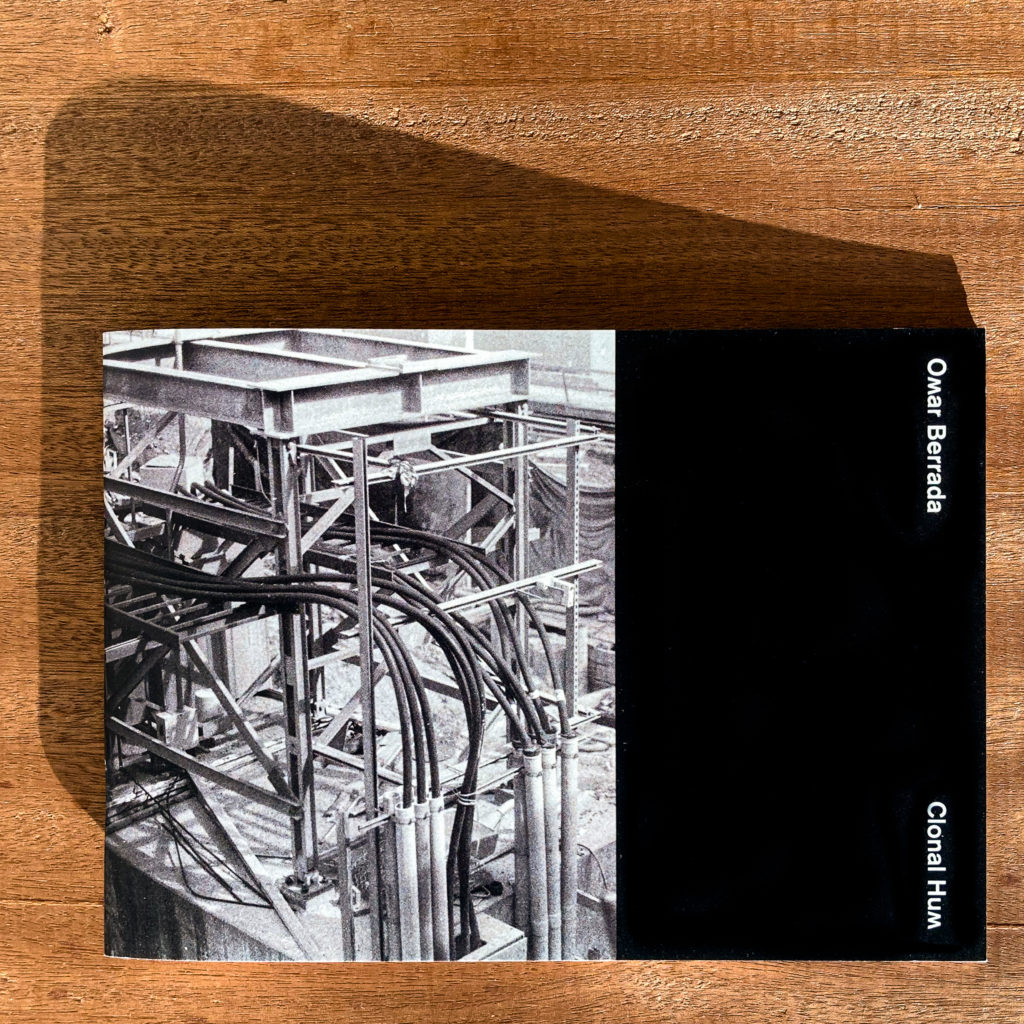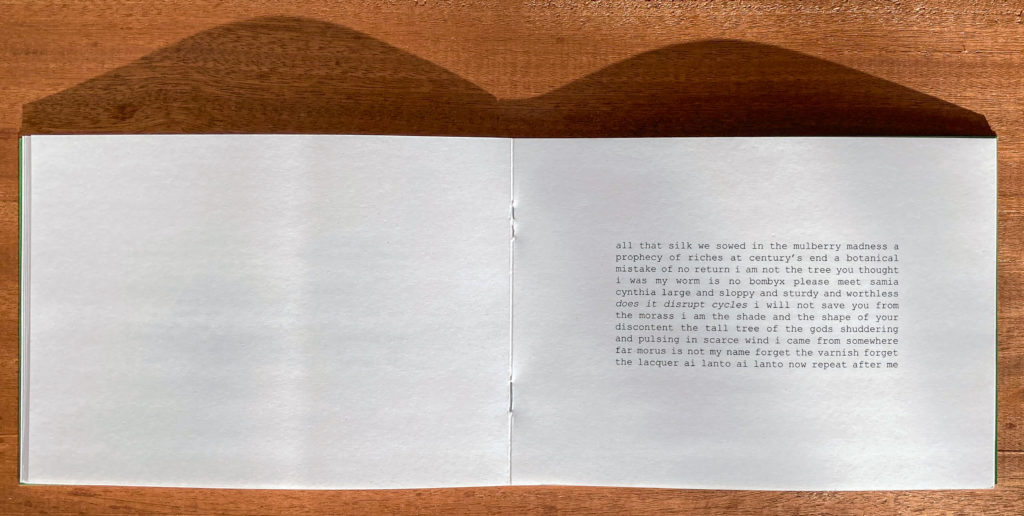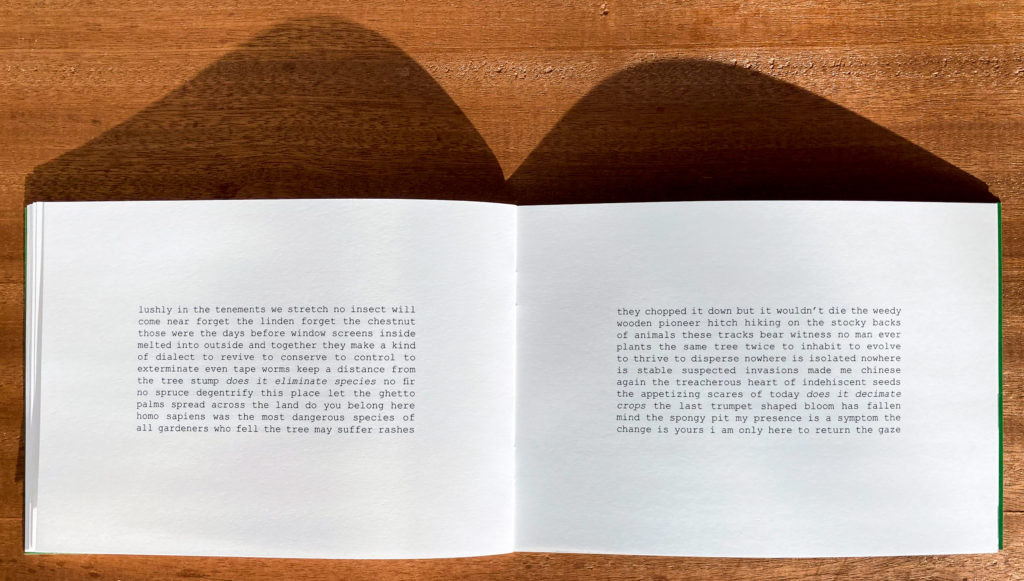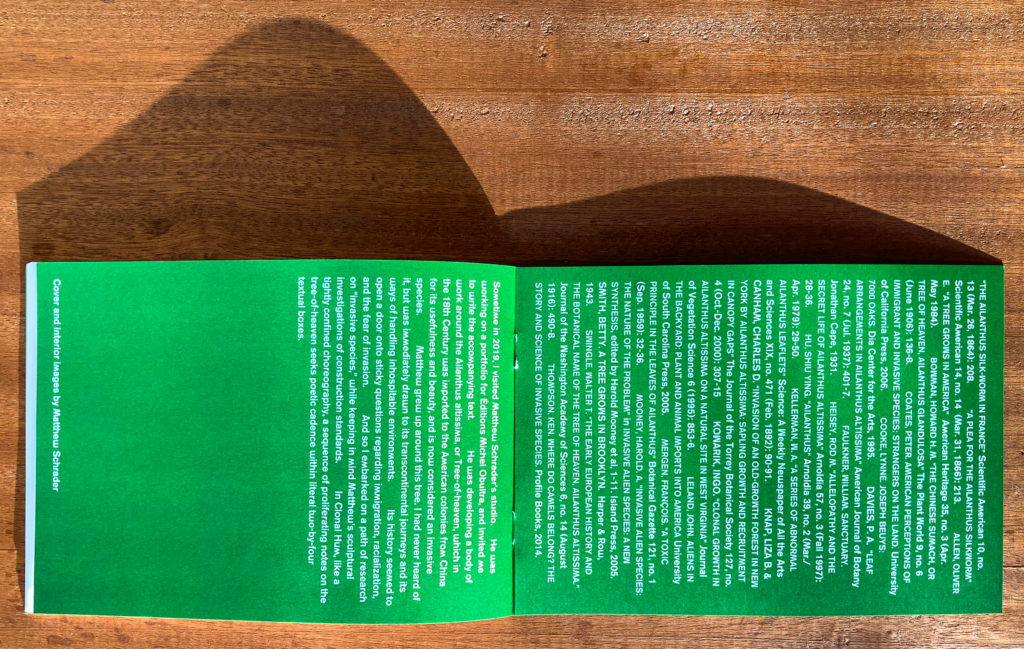





Sometime in 2019, I visited Matthew Schrader’s studio. He was working on a portfolio for Éditions Michel Obultra, and invited me to write the accompanying text. He was developing a body of work around the Ailanthus altissima, or Tree-of-heaven, which in the 18th Century was imported to the American colonies from China for its usefulness and beauty, and is now considered an invasive species. Matthew grew up around this tree. I had never heard of it, but was immediately drawn to its transcontinental journeys and its ways of handling inhospitable environments. Its history seemed to open a door onto sticky questions regarding immigration, racialization, and the fear of invasion. And so I embarked on a path of research on “invasive species,” while keeping in mind Matthew’s sculptural investigations of construction standards. In Clonal Hum, like a tightly confined choreography, a sequence of proliferating notes on the tree-of-heaven seeks poetic cadence within literal two-by-four textual boxes. –Omar Berrada
Omar Berrada is a writer and curator whose work focuses on the politics of translation and intergenerational transmission. He has curated exhibitions in Rabat, Marrakech, Rotterdam, Berlin, Dubai, and New York, and edited several volumes, including The Africans, a book on migration and racial dynamics in Morocco, and (with Yto Barrada) Album – Cinémathèque de Tanger, a multilingual book about film in Tangier and Tangier on film. His writing is included in The University of California Book of North African Literature and Poetic Justice: An Anthology of Contemporary Moroccan Poetry, among others. Currently living in New York, he teaches at The Cooper Union where he co-organizes the IDS Lecture Series.